“I grew up in this region. I graduated from nursing in 1991, and I sort of got to like the city life. But I read in our newspaper that the hospital was offering bursaries if local people would come back. There was also a retaining bonus. So I said, ‘Well, I will give it a try.’”
I found that I liked what I was doing here at a community hospital compared with the bigger city hospital.
“In the city if we did orthopedics, we did only orthopedics. If it was psychiatry, we did only psychiatry. All of a sudden I get here, and I walk in one room and teach breastfeeding and then I take care of a broken hip post-op in the next room. So, I kind of liked that.”
“I met my wife here. She’s a head nurse in the operating room and has been here 26 years. I have been here almost 25.”
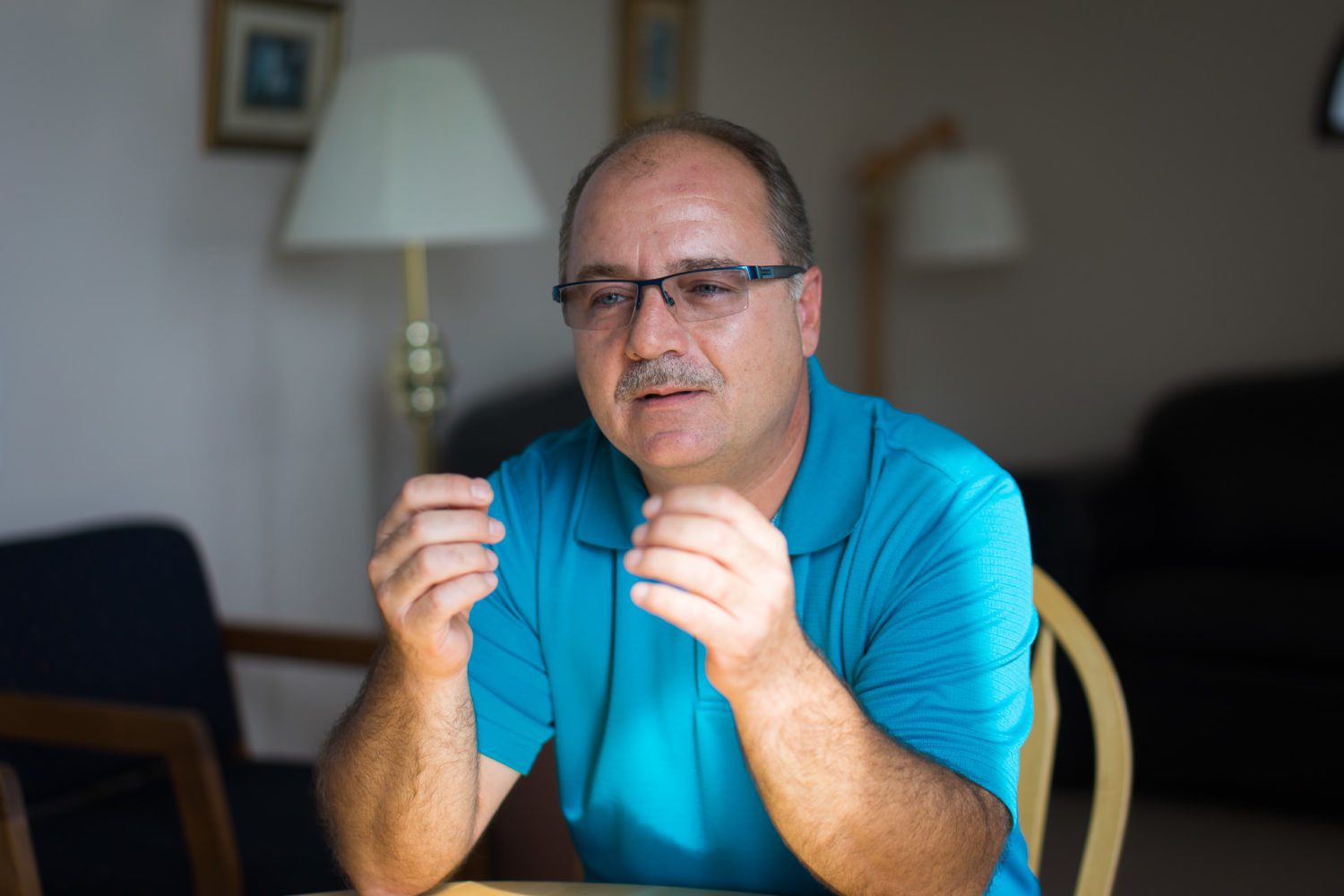
“I worked in many different wards in the hospital. The psychiatric nurse on the mental health team had been there for 15 years and decided to go to another part of the hospital. The administrator of that program approached me and said, ‘I can really see you doing this. Would you apply for the position?’ I said, ‘Let me think about it.’ So I hummed and hawed.”
“On the medical-surgical ward I would take care of a fracture or a laceration, or post-op I’d have a full wing to myself, maybe ranging from 12 to 14 patients.”
The struggling patient that came in with depression, the only thing I would do was give him his medication and tell him what it was for. That’s the only time I had for him.
“Or somebody would come in and a tree had fallen – an accident in the bush. We would focus on, ‘Okay, he’s got a fracture, he’s got a laceration, are the sutures okay, is he bleeding, does he have sensitivity in his toes?’ But seldom did we ask, ‘How do you feel inside? Who’s paying your bills? How is it at home? Is your wife struggling?’ We didn’t have time for that.”
“When the administrator approached me, I decided, ‘Well, here’s my chance to go see the other side.’ So, I said, ‘I will do it for 5 years.’ That was in 2003 and I am still here.”
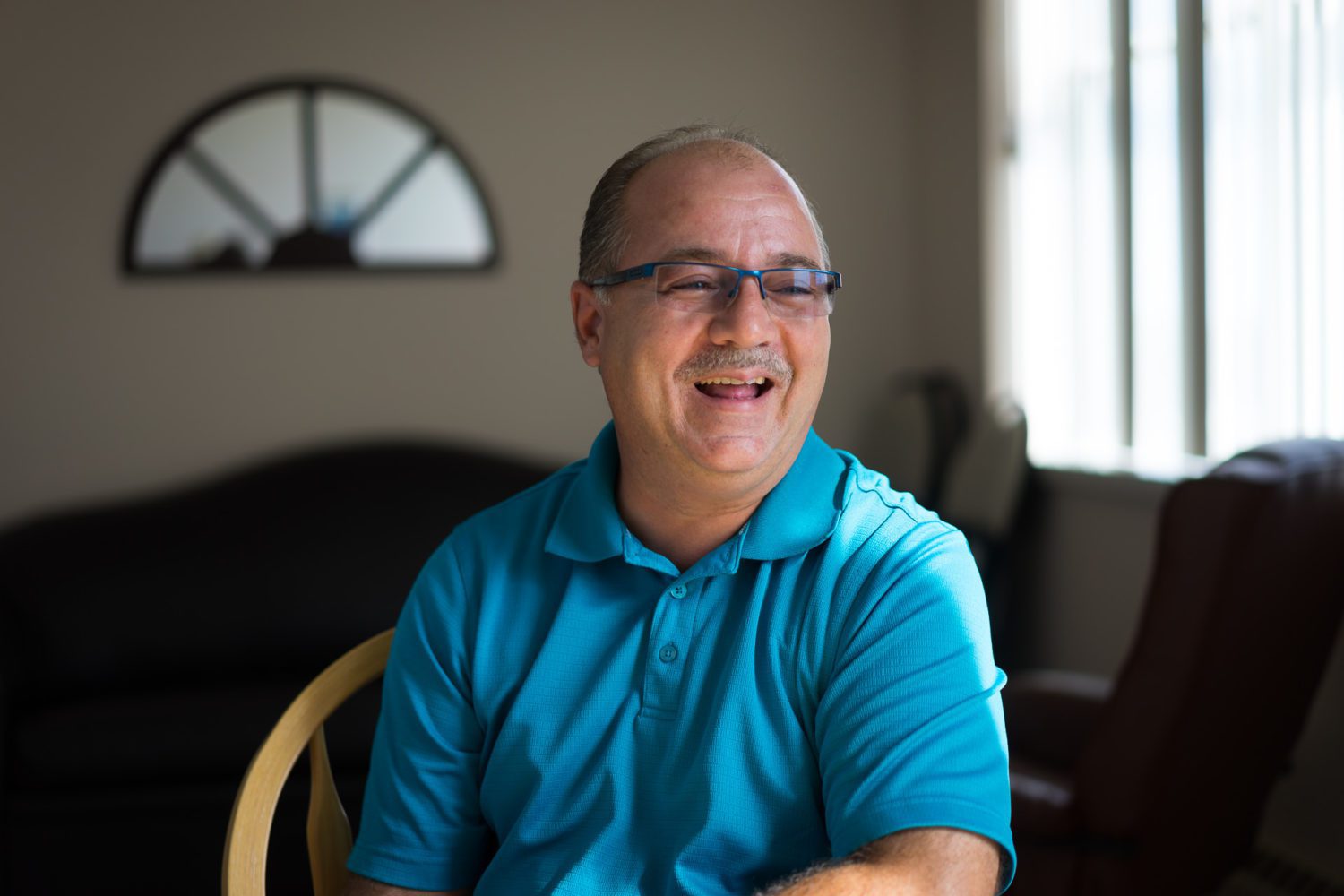
“What did the administrator see in you that made him think you’d be good on the mental health team?”
“That’s what I asked him! And he said, ‘Patience.'”
He said patience is a virtue in psychiatry and mental health.
“He said you can fix a broken leg or put a cast on, and you have a time period of three weeks. But if you have a patient with mental illness or psycho social issues, you have to have the patience to listen. You have to gain their confidence. Once confidence is established, then the patient’s healing process is shortened.”
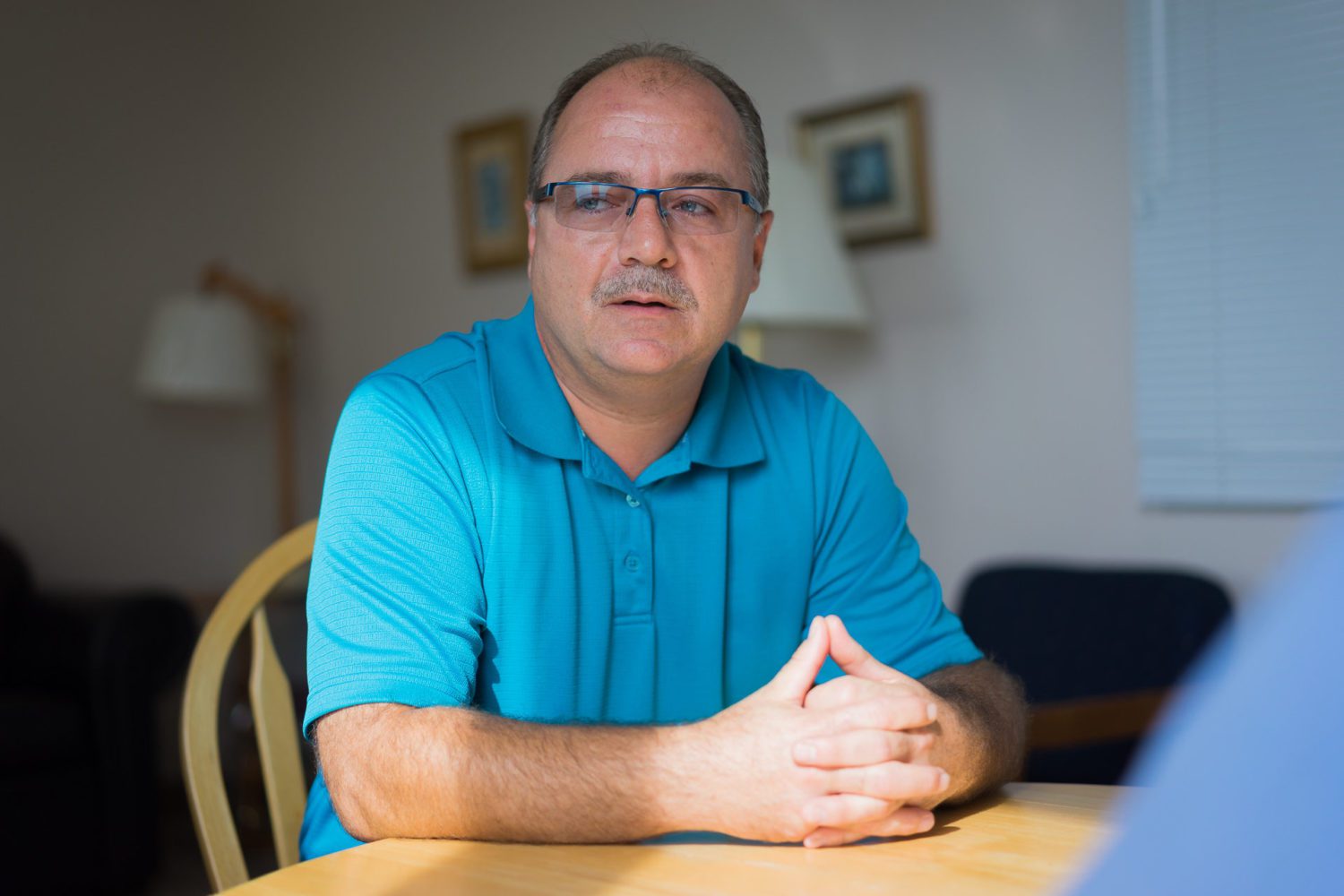
“As a nurse working in the operating room – there was a sponge count, there was a dressing at the end of the case, and when the patient left for the recovery room, my job was done. At the end of my shift on the medical ward, I knew that I gave all of my medications because I signed them all, I knew that my relief was there, and if there was anything else she would take care of it until I came back the next day.”
“In mental health you’re sort of like wheeling and dealing. If I make a non-suicide contract with you, are you going to respect it? Do I have enough trust, did I correctly evaluate that you’re not in danger and that if you became a danger to yourself you will apply our intervention plan and notify somebody before you go do the act? I have a pile of hours in training and experience for that now.”
But when I first started, I would sit at home with my cup of tea and I would say, ‘Is he going to do it? Did I do enough? Before crossing the line is he going to call somebody?’
“I remember my first call, it was a crisis in a public place; actually it was at the unemployment office. The person was not a candidate for unemployment. That was the final straw, and she declared right there that she was going to commit suicide. So the staff called us. That was my first call. For the first few years those were my biggest worries. But with hours of training and my co-workers – they really supported me. Now I am much more comfortable in these situations.”
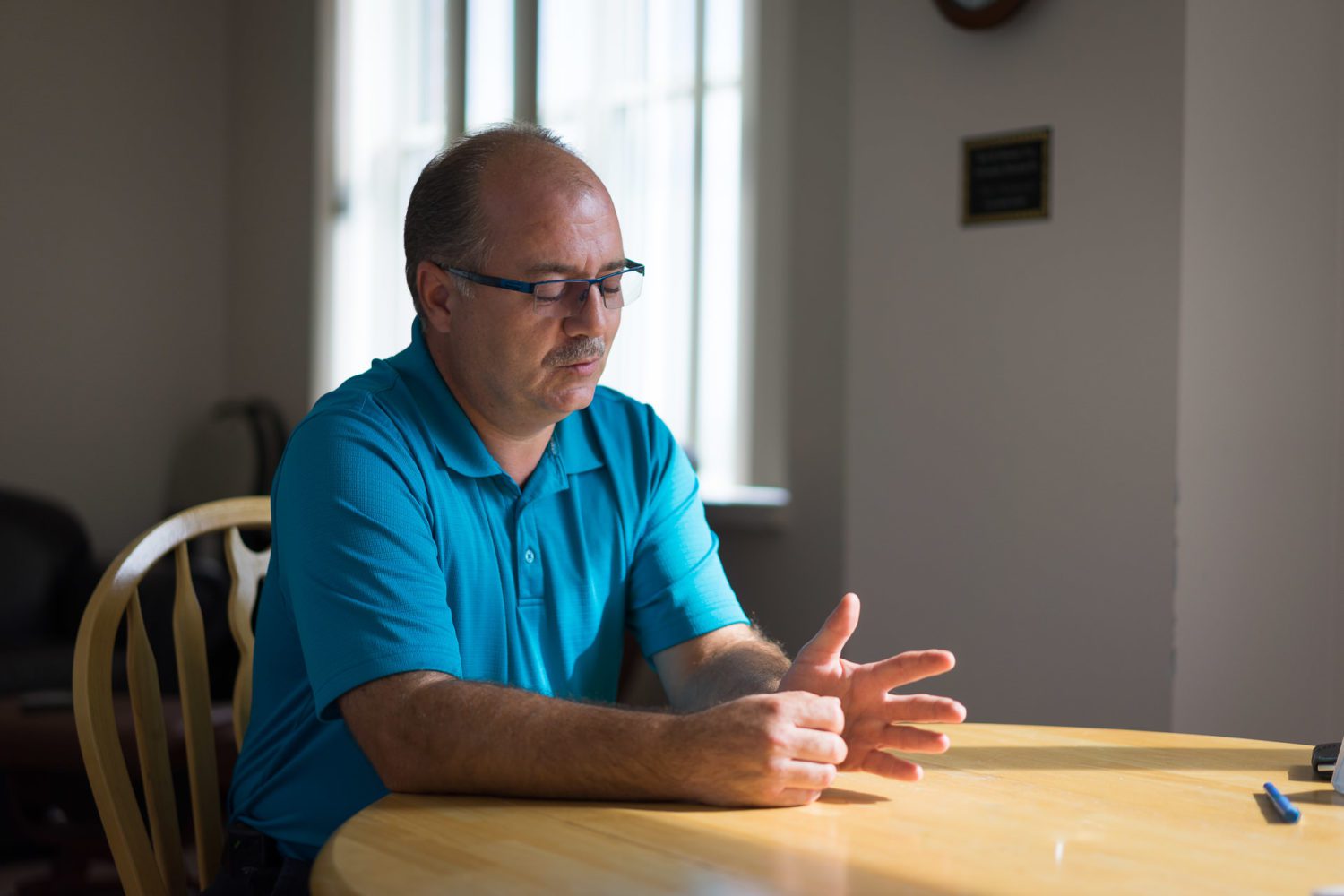
“Is there stigma around mental health in the community?”
“This is a smaller community, so people identify me as being a mental health nurse. If I walk at 7:00 in the morning by myself, everybody will talk to me. If I walk with a patient, nobody comes to me. Either they’re scared, or they realize I am working and they are respecting my work. But, if I am in the hallway with somebody who is a known diabetic, they will come and talk to me. Or if I am with somebody on crutches, they will talk to us. But, say I am supporting a gentleman in the community in his social skills, they know why I am there. They know him. They have seen his behaviour in the community. Maybe once he had psychosis… he created a scene or something. But the gentleman is stable now. You know?”
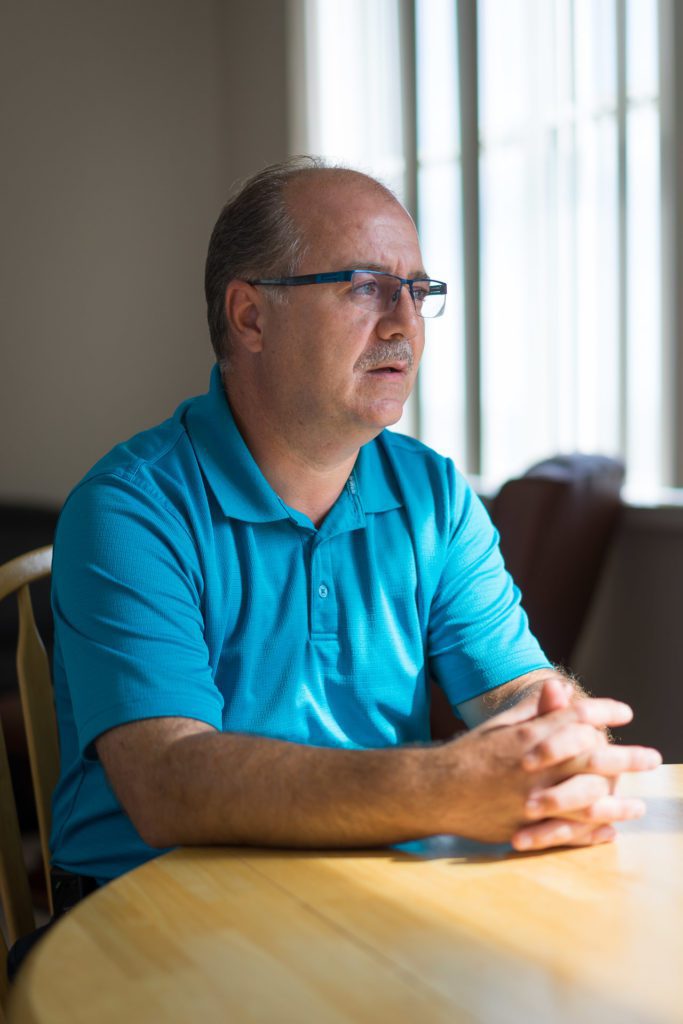
“I was tackled to the floor in the emergency room once. But I knew it was coming. I could see the escalation; I could see the anger. The client who is in front of me, I understand why he is aggressive or hostile. I understand it’s maybe because he has a voice in his head saying that we want to kill him. So my priority is for him to trust me. But sometimes the psychosis is so deep that there’s no… I remember when I was tackled, it was a client that I followed since day one, since 2003.”
But he didn’t attack me personally, he attacked the situation. I was in the frame of the door and I shouldn’t have been there.
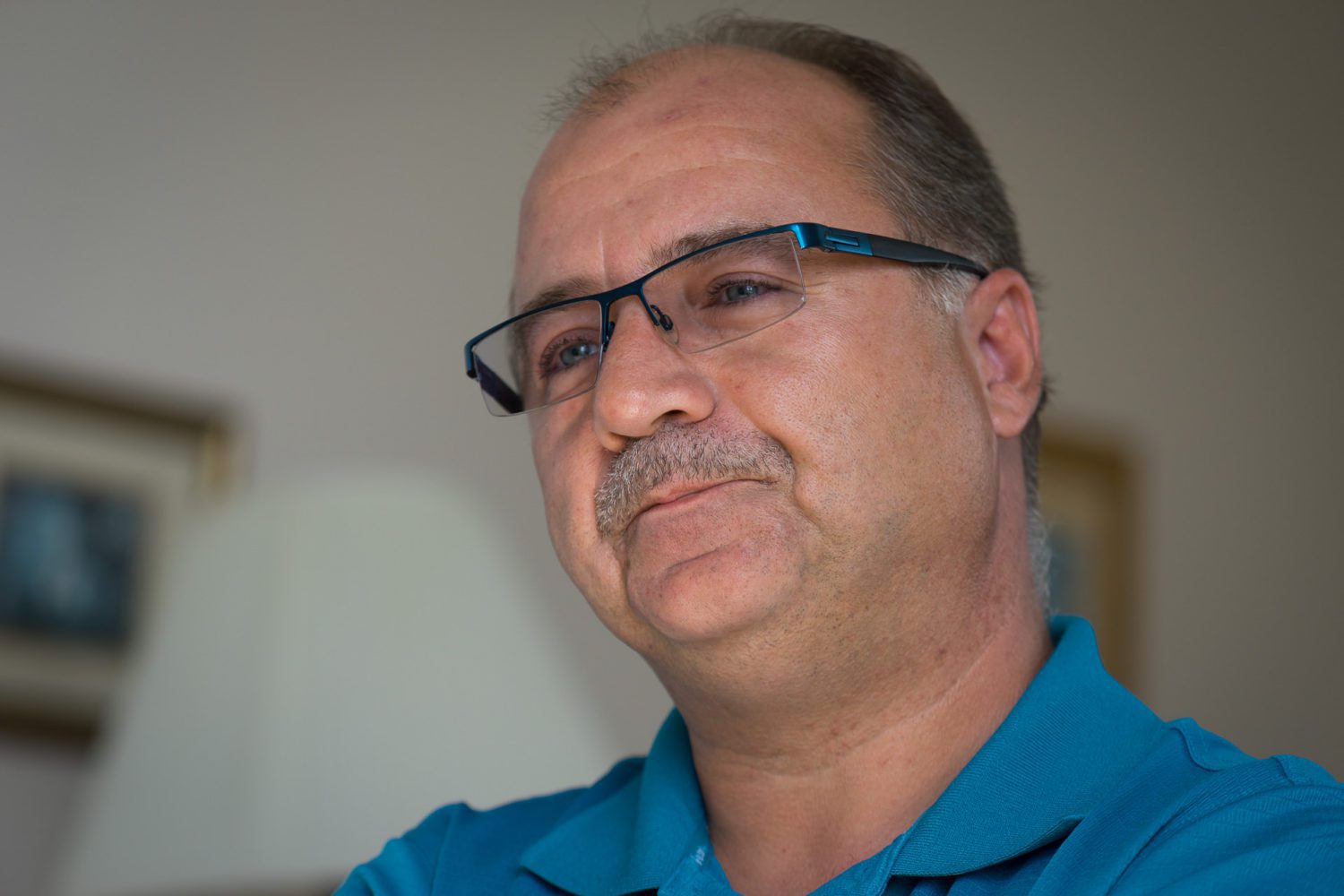
“What I like the most is, at the end of the day, I can say, ‘Okay, I accomplished this. I accomplished that.’ In our job we don’t have a pat on the back and a “thanks for your support ‘ Once the patients are gone, we hear from them only if they are unstable again.”
So, we have to go get the positive at the end of the day. ‘I accomplished this!
“When I first started with the client I was perceived as the devil. Now I am his best friend.’ We have to pat ourselves on the back.”
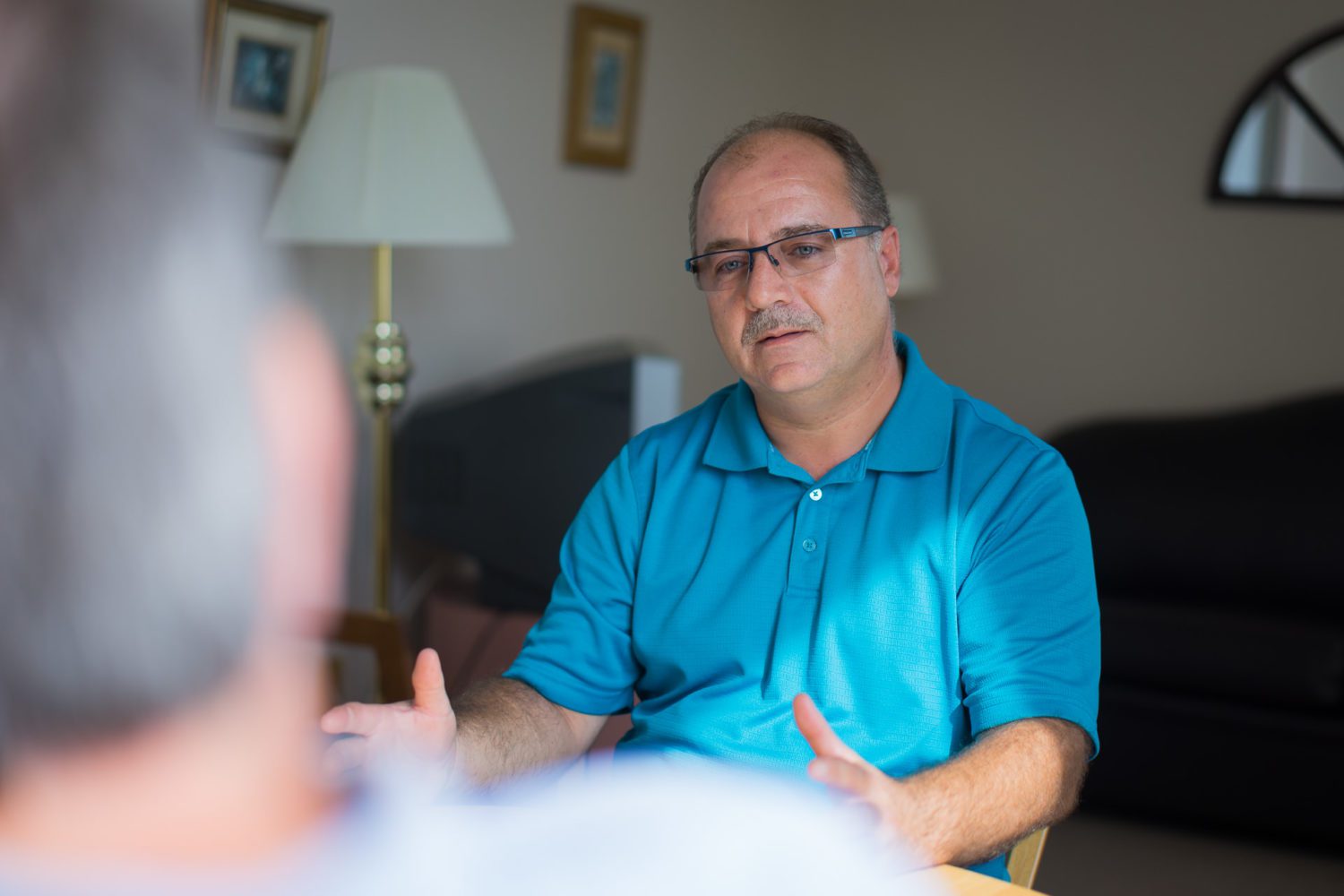
As a society, we forget about our mental health. People jog to prevent cardiovascular disease, but they won’t take five minutes to meditate, to clear their mind.
It’s not long, five minutes! Five minutes to clear your mind might make the rest of the day, or might make you more efficient when a crisis comes along. Society is too quick. ‘It’s going to cost money to take 5 minutes…'”
“Do you do that in your own life?”
Yeah, I will take five minutes. And sometimes my wife will ask me, ‘Where are you?’ I say, ‘I am here! When you left work today, you took your white coat off. Well, I am taking my white coat off.’”


The comments section is closed.